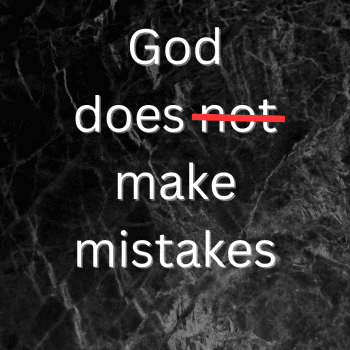
For 20 years I occupied a pulpit and preached to small congregations in rural areas. For the most part, the sermons were about loving your neighbor. I never got political and I rarely stepped too far outside prescribed boundaries. I regret some of the toxic beliefs I shared, but for the most part, I felt like I was helping people be better humans.
But one of the things I regret the most is my former relationship with the Bible.
In the past, I would proudly say when the mood struck me, “I have nothing to say of value that is not in this book.” I think I heard someone else say it, and I just repeated it. I now understand that kind of idol worship is unnecessary and not a healthy relationship with this ancient book.
I hope these comments will help you in your journey. I know that for some of you these discussions produce a visceral reaction and, for others, there is even trauma involved with your relationship with the Bible. I hope you will breathe deep and consider my thoughts as an ex-pastor and fellow sojourner. My only end goal is find truth and become fully human. I don’t want to destroy anyone’s faith, but I do want you to experience your own journey and not someone else’s.
A Warning about Unquestioned Allegiance
I hear people say that they are “Biblical Christians” or they “Preach from the Bible” or the “Follow the Bible.” Although well intentioned, what this really means is that they are interpreting the Bible based on a worldview and a systematic theology they received from their church of origin. In general, one person or group is usually telling them how to interpret this ancient book. They may have Bible study aids or might have taken some classes, but generally they are trying to fit their exegesis into their current belief system.
Jesus teaching didn’t always fit with the Scriptures we now call the Old Testament. He said things like “You have heard, but I say…” He would often ignore the violent parts of a passage when quoting it. If we are to literally interpret the Scriptures, then we have to accept some things like it promotes or fails to address like genocide, racism, slavery, rape, misogyny, and other things we don’t even agree with collectively.
One of the best things my seminary professor did was teach us to read different sources. If you are studying a book of the Bible, then read different interpretations from your tribe and outside your group before you decide what you believe. If this seems dangerous, ask why it is that you think that. Another seminary professor said, “Where you start is usually where you end up,” so be aware of your natural bias toward your own tribe’s beliefs. There’s a reason they want to preach to you soo often.
The Old Testament
The Hebrew Scriptures were written a few thousand years ago. This collection of Jewish poetry, history, prophecy and wisdom literature was a collection of stone, wood, clay and papyrus writings preserved for the Jewish people. Eventually, some of these writings (39 for protestants, 46 for Catholics, and more for orthodox) were preserved in what Christians now call the Old Testament.
I like what Lewis Black, a comedian, says to Christians: “This is not your book.” See his video here. Christians even formed their own book and called it the New Testament, but they still refer back to the Hebrew Scriptures when it serves their purpose. In my opinion, if we are to refer back to the Old Testament, we should consult a Jewish Rabbi who better understands how to interpret these writings. After all, it’s ultimately their book.
For roughly 2000 years, we have been misusing this collection of writings for our own purposes. It’s time to give it back to the Jewish people and let them enjoy it the way they want to. They probably don’t mind if we read it, but it is tremendously reckless to assume we know better about their book than they do.
The New Testament
After Jesus death, none of the New Testament letters and writings were immediately transcribed. The Gospels were most likely penned 30 – 60 years later. That’s right, decades later. They repeated what they remembered to each other and eventually a few of them put it on “paper.” Remember, these were the same guys (probably) that didn’t get it when Jesus was right in front of them. These and the other letters and writings of the New Testament were canonized and formed into a unit hundreds of years later.
I think the most responsible thing we can say about the New Testament is that it is “useful,” like Paul said (2 Timothy 3:16), even though he was referring to the Hebrew Scriptures and not the New Testament (it hadn’t been written yet). After all, it contains the Fruit of the Spirit, Paul’s teaching on love, Jesus summary of the law, and The Sermon on the Mount. Many things like this are indeed profitable. And I do believe it is inspired, just like I often get inspired. But, just because a writer is inspired doesn’t mean that they are infallible or perfect or even holy. The writings can be helpful if we approach them in the right way.
Some Big Questions I Have
- If God sent his communication to certain men, why was it only these 40 men over a 1600 year time period?
- Shouldn’t He still be inspiring people to write holy communication for us to live our lives by?
- Aren’t there still unanswered question?
- Why wouldn’t He want us to know?
- If Jesus was the Word (John 1) to us, why didn’t He write a letter or why didn’t they transcribe everything He said or why didn’t he tell anyone to write it down?
- Why does a council of men in the 4th century get to decide what is the inspired writing for all of us for all time?
- If God actually wrote this book, why is it NOT more clear, more cohesive, and more accurate?
- Why does the writings of the Bible not definitively answer questions about moral issues like slavery and rape?
Summary
As I said before, I consider the Bible to be useful. I find Jesus to be compelling and His teachings are extremely useful in my life. The Bible gives me some insight into the time he lived and what he might have said, even though I realize it’s not totally accurate or infallible. I believe that all throughout history, people have been inspired to write about their search for meaning and understanding of the Divine. Christianity needs to have it’s own deconstruction soon, so that the noble parts of it can be preserved. Part of this deconstruction should be to preserve the Bible, but remove it from the altar. It was never supposed to be an idol — it’s a book of ancient writings.
Personally, I see so much negative from American Evangelicalism. Most of it stems from them taking parts of the Bible and weaponizing them against those who they consider to be “other.” If you make me choose, I will choose love and compassion over someone’s interpretation of a book. The book is not holy enough to have authority over me and I won’t condone violence, bigotry, misogyny, racism, hatred, and nationalism because of anyone’s interpretation.
We can do better — don’t burn the Bible — just take it off the altar.
Be where you are, be who you are,
Karl Forehand
Order Being: A Journey Toward Presence and Authentic
Karl Forehand is a former pastor, podcaster, and award-winning author. His books include Apparent Faith: What Fatherhood Taught Me About the Father’s Heart and The Tea Shop. He is the creator of The Desert Sanctuary podcast. He is married to his wife Laura of 32 years and has one dog named Winston. His three children are grown and are beginning to multiply!
Support us on Patreon * The Desert Sanctuary Website

















